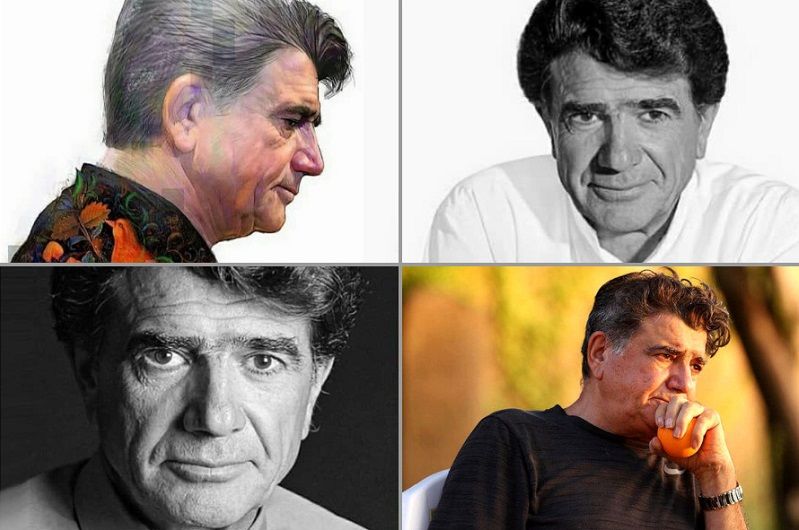Hossein Hashempoor: Plainclothes agents and a master of Iranian singing/ The Strange Case of Mohammad-Reza Shajarian

Tehran. (Iranart)- In August 2016 that Shajarian came back to Iran after from Europe and America after a long travel , his ban of working in Iran raised again;it seemed that nobody remember his background in 1980s..
Master Shajarian's strange case goes back to the collective memory of all Iranians who remember the sixties [in sun calendar]: about twenty years ago, when you wanted won in the job interview and be hired in a governmental company, if interviewer asks: what kind of music do you listen to? Should you say me and the music?! Or if you did not want to lie, the best option was to name "Shajarian".
First – In those years, whenever plainclothes officers stopped cars, after inquiring about the proportions of the passengers. They must have asked what these tapes are, and 99% of people automatically said, "
"Shajarian". This narration also had a third side, There was no music market in those days, and the younger generation, who wanted some kind of exciting music, usually did not find a domestic option.
But at the same time there was an easy access to Los Angeles music, which, despite the blockages of the time and the lack of the Internet, was strange; in such an atmosphere, the claim of listening to Shajariyan's music brought a kind of culture to the claimant.
According to these three perspectives, all those years, the name of Shajarian was the shelter of whoever interested in any kind of music.
Second - a few years ago, however, the times turned to the other side, and in complete disbelief, that popular musical master became "Do not call by name" symbol. He was not convicted in any court and not even charged by any judicial authority, but it turned out that he was not allowed to have an album or a concert. While no legal authority formally announced such bans, but several media outlets were always anxiously blowing in a fire that had only smoke, and its smoke happened to irritate everyone.
Third – maybe Iran is the only country that simply punishing its intellectual role models; some all their work and life is to make the circle of locals narrower every day and to stick the artistic elites who have stood by their compatriots despite all the hardships with any kind of glue to strangers.
Forth - the greats of art and culture have always had a common pain: they say that until the first two decades after the Islamic revolution in Iran, they heard insults from abroad that their stay in Iran was a seal of approval for the government, and at the same time some inside the country were in the minority but their voices were louder than the others, they were accused Iranian artists outside of Iran, of not smelling patriotism and westernized people. In the present decade, there is not much sound from outside, but inside, it seems some people still do not consider the greats of art as their own, and they hurt the hearts of their professors and lovers under any pretext; It is a strange thing that is very unfortunate, but it is.
Five – Today, whispers of the singer of "Morning Bird" returned to the homeland and heard; I wish we could believe that the era of statements such as video ban, concert ban ... its expiration date is over; In the face of such restrictions, we only turn virtual social networks into a real community for people; People release what they like from the shadow of any ban ... Hope that with the return of the master, an atmosphere of rationality and wisdom about the national gems of this land emerge.
Six - Today, Master Mohammad Reza Shajariyan left this world and became comfortable; despite the wishes of the majority, national radio television broadcasts his song or even symbolically allows his concert to be permitted.
First parts of this memo were published on Tuesday,September 7, 2016 in Shargh newspaper,page 14.

